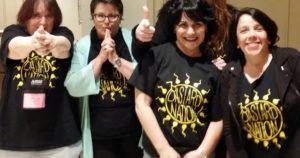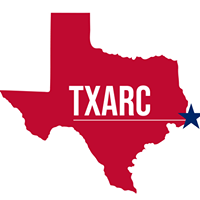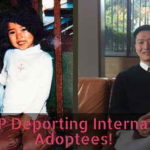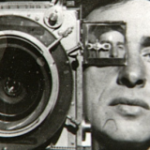Adoption is a personal experience, and a boomlet in new sites speeds the process and airs recurring issues.
JAMES ROMENESKO STAFF WRITER
Sonia, a little girl born without arms in India, faced a difficult life in her native country.
“It’s bad enough if you’re a girl in India but if you’re disabled you’re really in trouble,” says Jody Johnson, a Richfield resident who stumbled on the 8-month-old’s picture at an adoption Web site. “You can’t marry, you can’t work, and you spend your life in an institution.”
The 32-year-old woman had been interested in adopting a child since her high school days, when she read a book about special needs children without families.
“The fees were a barrier for a long time,” says Johnson, who has two children, ages 3 and 5, with her husband, Michael Boyer.
Last March, when her family got an Internet account, Johnson punched “adoption” into a search engine to see what would come up.
“I wasn’t actively looking to adopt a child at that time — I was just playing around with the Net,” she says. “I came up with a ton of listings.”
And then she saw Sonia at a site called Precious In His Sight.
“They had a profile of her saying she was a wonderful, social child, but she has a challenge in that she was born without arms,” says the mother. “I carried the profile around in my pocket for two weeks while trying to figure out how to come up with the money.”
Just months later, the forms have been completed and the family has been approved to receive Sonia.
Burdened with $15,000 in fees and expenses, the Richfield family has taken out an adoption loan, borrowed money from friends and relatives, and will be holding fund raisers. (E-mail gungajody@aol.com for more information.)
Meanwhile, Jody Johnson is preparing her home for Sonia, who will be escorted from her Indian orphanage to Minnesota within six months — something the mother says would not have happened if she hadn’t gone online.
“It makes the child so much more visible for you,” she says.
In the very recent past, the adoption process seemed like a never-ending nightmare of red tape, paperwork, studies, and headaches. While it can still be an ordeal, the World Wide Web has helped demystify the process. There are Frequently Asked Questions page, pictures and descriptions of waiting children, and detailed explanations of what one can expect in the required home study.
For adoptees looking to find their birth relatives, there are several sites offering assistance and encouragement in chat rooms and on message boards. “I am a successfully reunited adult adoptee,” a woman writes on the Adoption Registration Coalition board. “For the first time in my life, I look like somebody other than the dog.”
Birth parents, too, have places to go online for help in finding the children they put up for adoption decades earlier
For government, the Web has been a way to get more public interest in publicly funded adoption programs.
For the first time — and because of its new Web site — Ramsey County’s Human Services department has received inquiries from out-of-state residents interested in adopting local children. That poses a dilemma for those in charge of seeing that youngsters and teens are put in good homes in familiar locales.
“We want to try to keep the kids in Minnesota if we can, but if we don’t have the local resources for them, we’ll consider them for out-of-state families,” says Lorelei Libra, the county’s supervisor of guardianships and adoption.
In 1997, Ramsey County got legal adoptions for 75 children, she says, and while it’s too early to predict the 1998 figure, Libra says the interest is higher this year.
“We seem to get more people calling about special needs adoptions, but overall the calls are increasing, too,” she says. “The Web site is giving us exposure.”
Hennepin County has also seen a greater interest in its adoption program since putting pictures and descriptions of children online, says Ana Dean, targeted recruiter for the county’s adoption program.
Since going on the Web in March of 1997, the county adoption program has received inquiries from residents of 23 states, as well as from Canada and Spain.
The county is close to finalizing three adoptions that were started when families saw pictures and descriptions online, Dean says.
Hennepin County hopes to demystify the adoption process with online information, she says.
“This also cuts down on the amount of information we have to give out,” adds Dean.
In 1997, there were about 128 adoptions finalized in Hennepin County, and officials are projecting greater numbers for this year.
“I think the Web has contributed to that,” says Dean.
The Web has given hope to parents trying to find children they put up for adoption years ago.
JoAnn Erickson is one mother who spends much of her time online, putting out messages that she prays will lead her to a son she delivered in Minneapolis on August 3, 1963. Three months later, she decided it was necessary to give the child up.
“In 1968, I seriously started to try to find my son,” says Erickson, now 54 and living in Florida. “But what I found is that because I don’t have a birth certificate, I’ve run into more difficulty.”
Erickson also has a 25-year-old son, Scott, who grew up as an only child and, as a young boy, often asked if he would ever have a brother.
“When he was 8, I finally told him that he did have a brother, and he was so excited,” she says.
Scott knew his mother had spent years quietly searching for her first born child, and last spring, he gave her a computer and an Internet account as a gift.
“He gave this to me on Mother’s Day because he wanted to help,” says Erickson. “He kind of led me through the basics [of Internet navigation], and then stood back and let me search. He didn’t want to interfere.”
The mother has posted information about her oldest Minnesota-born son on several message boards, and she continues to use the Net to come up with new ways to do her search.
“It’s amazing how much time one can spend searching different areas of the Net,” she says. “One Saturday I spent nine hours online. I probably have 40 adoption areas bookmarked now.”
The mother writes in her postings that she doesn’t want to disrupt her son’s life.
“The reason for my search is to make any information available to him if he wants it,” she says in a phone interview. “But it would be wonderful to hear he’s doing well and he’s happy and has had a good life.”
She’s surprised by the number of encouraging e-mails she’s received from other mothers who are looking for, or have found their children. Some have offered to help in her search.
“With all the assistance that people are trying to give me — people I don’t know — you never know, maybe something will happen,” she says.
Of the hundreds, if not thousands, of adoption sites on the Internet, the one that gets the most reaction is Bastard Nation, which was started by regular newsgroup message posters at alt.adoption who wanted to fight for adoptees’ rights.
“This was a group of adult adoptees who agreed that the sealed record laws violated our civil rights and our dignity as adult citizens of this country,” says Damsel Plum, co-founder of Bastard Nation.
The Web site’s outrageousness is often criticized by adoptees and birth parents for its radical stance, she says.
“The whole premise of calling ourselves Bastard Nation is obviously to get attention — for the shock value.” Her group members see themselves as radicals of sorts involved in a civil rights struggle, she says.
“We wanted a site that covered a wider spectrum than what was available online — all of these sites about happy reunions,” says Plum. “I collected true tales of revolting reunions as sort of a balance against the other sites and their happy stories.”
She also sees the site as a place for adoptees to be open and express their anger.
“A lot of adopted people are very closeted about it and in some families it’s taboo,” says Plum. “For some adoptees, the Internet is the first place where they come out as adopted persons, and we wanted a place where they could unleash those taboo demons.”
Some visitors to the site, though, are more hopeful than angry. A woman named Christo posted this message — similar to many others on the board — in early July:
“I’m just starting the search for my son, whom I called Joey when he was born on 07-17-66. In a few days he will be 33. Joey was born in Milwaukee, Wi. and adopted through the county. I think about him often, always remember his birthday and he is always in my prayers. This evening on the news a mother and son were reunited after 29 years! There is hope! Any information would be appreciated. In the meantime, happy birthday Joey, wherever you are.”


 New York Adoptee Rights Coalition
New York Adoptee Rights Coalition











